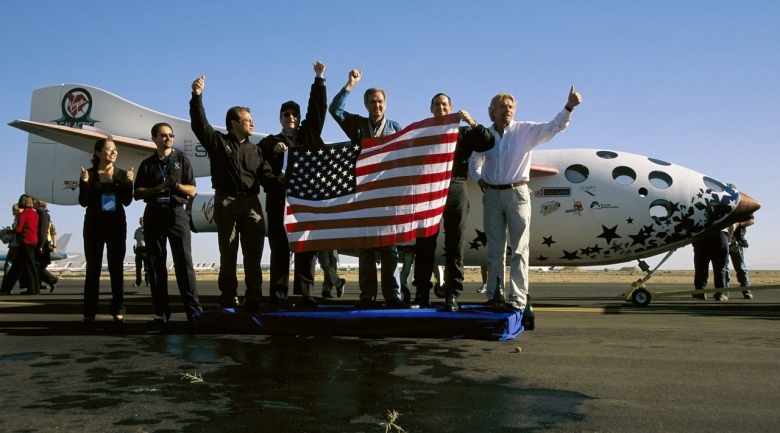
Richard Branson has reiterated his plan to fly with his children on the inaugural flight of his long-planned commercial space operation, Virgin Galactic, despite the relatively untested nature of the technology and a departure date which has slipped repeatedly.
"Everybody who signs up knows this is the birth of a new space programme and understands the risks that go with that," Branson said in an interview for Weekend magazine at Virgin Galactic’s base in the Mojave desert north of Los Angeles. "But every person wants to go on the first flight."
While insisting his plan is credible and the first flight, reaching 62 miles above the Earth, will take place later this year, he has previously promised it for this autumn, Branson admits how difficult it has been to overcome the exacting safety expectations of a commercial space operation.
He said: "The biggest worry I had was re-entry. Nasa has lost about 3% of everyone who’s gone into space, and re-entry has been their biggest problem.
"For a government-owned company, you can just about get away with losing 3% of your clients. For a private company you can’t really lose anybody. Nobody we met had anything but the conventional risky re-entry mechanism that Nasa had. We were waiting for someone to come up with one that was foolproof."
Branson’s planned spaceship is a scaled-up version of SpaceShipOne, designed by Burt Rutan, a maverick and now-retired aerospace engineer who, with funding from the Microsoft billionaire Paul Allen, won the $10m X prize for the first private flight into space with a reusable spaceship.
"Burt Rutan’s idea was to turn a spaceship into a giant shuttlecock," Branson said. "And so the pilot could be sound asleep on re-entry and it didn’t matter what angle it hit coming back into the Earth’s atmosphere."
Almost 700 people, including Tom Hanks and Angelina Jolie, have paid between £125,000 and £155,000 to book a two-hour journey on Virgin Galactic’s SpaceShipTwo, which would include a planned five minutes of weightlessness.
However, despite Branson’s regular insistence that the first six-passenger flight is imminent – he has confidently announced it for more or less every year from 2007, the service has completed only three test flights with a peak altitude of little more than 13 miles. To achieve the necessary US Federal Aviation Administration licence, the craft will need several tests at its full speed and 62-mile height.
The journalist and author Tom Bower, who has just published a biography of Branson, says he believes SpaceShipTwo’s engine will need to be redesigned before it can achieve Branson’s stated aims, making a full-blown space flight by autumn extremely unlikely.
